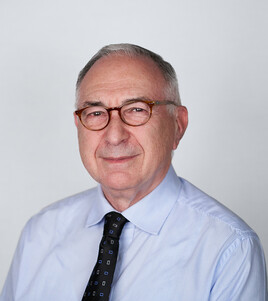In its September 2025 shareholder letter, CLINUVEL Chairman Professor Jeffrey V. Rosenfeld has painted a picture of a company that has not only delivered financial stability but also carved out a rare position as a profitable, dividend-paying biotech with no debt and a growing cash reserve.

For the financial year, CLINUVEL reported revenues of $105 million, a net profit after tax of $35.6 million, and an eighth consecutive dividend of $0.05 per share. Professor Rosenfeld stated that these returns were entirely funded by operating cash flow. Over the past five years, the company has invested $171.2 million in R&D and commercial activities, undershooting its original forecast and underscoring its reputation for disciplined financial management.
Rosenfeld was quick to frame these results against industry norms. In a space where many platform-product biotechs rely on dilutive capital raisings every 18 to 24 months, CLINUVEL has not raised capital from investors since 2016. The company now holds $224 million in cash, a 22 per cent increase year-over-year, which translates into net tangible assets of approximately $4.80 per share.
The company's flagship product SCENESSE is already approved in significant markets, generating steady revenues and supported by a validated safety profile. Expansion into new indications, including vitiligo, is funded entirely through internal resources.
The shareholder letter also highlighted operational efficiency. CLINUVEL has managed to maintain a gross margin of about 50 per cent and, more tellingly, a net profit margin of 34 per cent. Rosenfeld described this as a sign of commercial and operational discipline, adding that the company is actively considering acquisitions to strengthen its growth further.
Pipeline progress remains a central part of its narrative. CLINUVEL has emphasised the favourable development of NEURACTHEL, with commercialisation timelines expected once manufacturing validation is complete. Its PhotoCosmetic programs are advancing through formulation and regulatory stages, aiming to open new markets and diversify revenues. Meanwhile, the vitiligo program continues with cash-flow funding, reinforcing the company’s commitment to growth without returning to capital markets.
The letter did not shy away from valuation concerns. Rosenfeld acknowledged that CLINUVEL’s share price does not reflect its performance. He noted that US-listed companies with similar profiles often trade at enterprise value-to-revenue multiples of four to six, while CLINUVEL trades at a discount.
Part of the strategy to close this gap is visibility. The company has announced plans for a Level II American Depositary Receipt listing on NASDAQ to increase awareness among US investors, where profitable growth stories are more readily recognised. Rosenfeld also pointed to renewed executive momentum, citing the return of CEO Dr Philippe Wolgen and strengthening leadership across the company .
Succession planning was another theme. The board has initiated a structured process to ensure leadership continuity, with an update promised in early 2026. Such planning is presented as part of a broader effort to address execution and margin risk while preparing CLINUVEL for its next growth phase .
In closing, Rosenfeld struck a confident note, telling shareholders he would “far rather own CLINUVEL’s operations, prospects, and balance sheet at a depressed share price, than hold the position of most of our international peers.”
